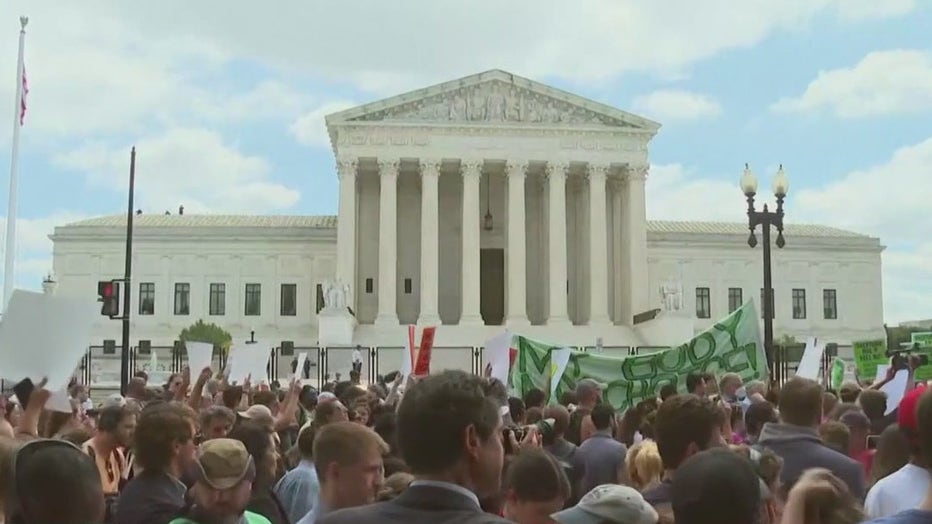Roe v. Wade: One year after landmark decision overturned, leaving abortion laws up to states

One year later: Overturning Roe v. Wade
One year ago this week, the US Supreme Court overturned its landmark Roe v. Wade decision, leaving abortion up to the states. Since then, a number of them, including Florida, moved fast to put down restrictions.
TAMPA, Fla. - One year ago this week, the U.S. Supreme Court overturned its landmark Roe v. Wade decision, leaving abortion rights up to the states including Florida.
June 24, 2022, was a monumental day in U.S. history as Supreme Court justices reversed longtime protections on abortion rights. Florida joined several other states that quickly clamped down on abortion that year, enacting a ban on the procedure after 15 weeks of pregnancy. While access has changed, the law on abortion in Florida is still in limbo.
"So a year out from Roe, we're about in the same spot in Florida we were a few months out from Roe," said Louis Virelli, a law professor at the Stetson University College of Law in Gulfport.
READ: Governor Ron DeSantis signs 6-week abortion bill
Florida’s 15-week ban is still being challenged in the courts. An even stricter ban after six weeks of pregnancy passed this year, and that’s tied up in the state supreme court’s decision on the first ban.
"When they do that, if, for example, that they uphold the 15-week ban, they say that you can prohibit abortion after only 15 weeks. Thirty days later, another law goes into effect in Florida that says abortions are legal after six weeks," said Virelli. "Overturning the current state of abortion law in Florida by the Florida Supreme Court is a much greater change and a more dramatic move than even what the U.S. Supreme Court did in the case called Dobbs that overturned Roe v Wade. And that was quite dramatic in its own right."
While Floridians wait to see what the justices decide, providers have been busy.

"We've actually seen a 700% increase in abortion patients from other states," said Laura Goodhue, the executive director of the Florida Alliance of Planned Parenthood Affiliates. "We are busy at Planned Parenthood. But at the same time, I think a week after Roe v Wade was overturned, the state of Florida enacted a 15-week ban, which has been really hard for people who a lot of people that have had very wanted pregnancies, but something goes wrong. You don't really get that ultrasound to see how the pregnancy is going until after 15 weeks, and we've had to send people out of state."
MORE: Supreme Court preserves access to abortion pill mifepristone for now
Planned Parenthood Florida said the laws are creating confusion, and it’s putting patients in the cross-hairs.
"There was a woman in South Florida, for example, who I think just like two weeks after Roe v. Wade fell, found out that she was miscarrying and that her amniotic fluid, actually she didn't have any. And so, the fetus wasn't going to survive. But then the doctors were afraid to help her with that miscarriage management. She actually ended up losing half of her blood and almost dying and going to the hospital," said Goodhue.
Law experts said the reversal is noteworthy for people following constitutional law and rights.
"We'd had rights that weren't recognized until too late or later than they should have been. But we've never had one taken off the books like this," said Virelli. "And what we're seeing is within a year, a quarter of the country has gone to an extreme about as extreme measures you could in response to that decision. And again, people can be happy about it. But as a legal matter, we see the consequences of these things."
Virelli said it is not unusual for an appellate court to take a long time to make a decision, so Florida will have to wait and see how long it will take before learning what will happen with the abortion bans.

